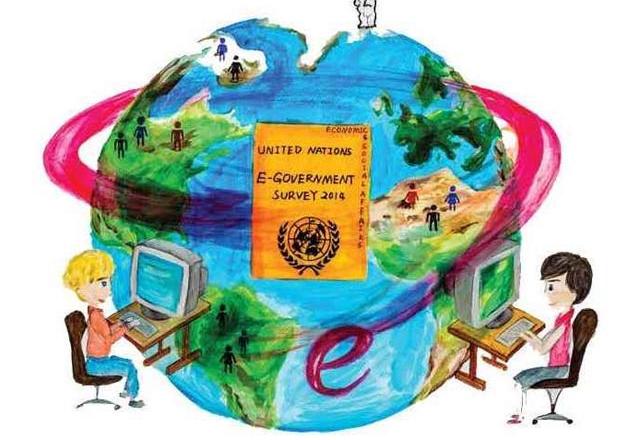You are here
Jordan drops 12 places in world ranking for e-services
By Mohammad Ghazal - Aug 11,2016 - Last updated at Aug 11,2016

AMMAN — Jordan has been ranked 91st out of 193 for e-government services, falling 12 places since 2014, according to the UN’s 2016 E-Government Index.
Jordan’s ranking for e-participation also dropped, falling to 98th place in the index, from 71st place in 2014.
Overall, Bahrain ranked 24th globally, followed by the UAE in 29th place, Saudi Arabia in 44th place and Qatar in 48th place.
"There has been a delay in launching e-services over the past years. Many governments in the region nowadays talk about smart government, which is more advanced than just having e-services," an expert in the ICT sector, who preferred not to be named, told The Jordan Times.
"Jordan needs to speed up provision of high quality e-services that should be also coupled with increased awareness so people start using them," said the expert.
In June, the government said it would launch 50 new e-services by the end of the year, bringing the total number of e-government services to 150.
The new e-services will be affiliated to the Greater Amman Municipality, the Ministry of Interior, the Social Security Corporation, the Ministry of Education and the Civil Status and Passport Department, among other public entities.
Around 48 per cent of Jordanians have never used an e-government service, according to figures recently released by the Jordan Strategy Forum, while 20 per cent are unaware of the e-services available.
Authorities formally launched the e-government programme in 2006 with a view to streamlining bureaucracy and providing efficient services to Internet users.
The UN E-Government Survey, produced every two years by the UN Department of Economic and Social Affairs, is the only global report that assesses the e-government development status of all 193 member states of the UN, the UN said in a statement.
The latest survey suggests that all regions are increasingly utilising new ICT tools to deliver services and engage people in decision-making processes, the statement added.
The UN said the report also uncovered that substantial regional disparities and a growing divide continues to persist.
Furthermore, lack of access to technology, poverty and inequality prevent people from fully taking advantage of the potential of ICT and e-government for sustainable development, according to the UN.
While Europe continued to lead on e-government, followed by the Americas, Asia and Oceania, Africa lagged furthest behind, the survey found.
Related Articles
AMMAN — Jordan ranked 98th globally in the UN E-Government Survey 2018, dropping seven places when compared to the 2016 survey.The survey, w
AMMAN — Jordan has made a remarkable progress in the UN e-Government Survey 2022, published by the UN Department of Economic and Social Affa
Jordan ranked 79th globally in the UN Department of Economic and Social Affairs’ (UNDESA) E-Government Survey Report 2014, improving by 19 places compared to 2012.

















